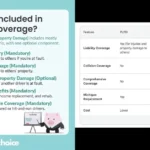Python interview questions are an essential part of every aspiring data analyst’s journey. Python is known for its simplicity, versatility, and effectiveness, especially in fields like data analysis, artificial intelligence, and web development. This guide presents the 50 most commonly asked python interview questions, along with their simple and easy-to-understand answers. Whether you’re a beginner or someone preparing for an interview, this article will provide you with clarity and confidence.
Why Python Is So Popular Among Data Analysts
Python has taken the tech world by storm. According to Stack Overflow, Python ranks among the most popular programming languages globally. Its rise in popularity is due to:
- Easy-to-understand syntax
- Vast collection of libraries like Pandas, NumPy, and Matplotlib
- Supportive community
- High demand in data analysis, machine learning, and automation
Understanding Python Basics
What is Python?
Python is a programming language used to instruct computers to perform tasks. It is high-level, meaning it is close to human language, making it easier to learn.
What is a Variable?
A variable is like a box where you can store information, such as numbers or text. Example:
name = "Ali"
age = 10
What is a List?
A list is a collection where you can store multiple items:
fruits = ["apple", "banana", "orange"]
What is a Loop?
A loop is used to repeat a task multiple times:
for fruit in fruits:
print(fruit)
What is a Function?
A function is a reusable block of code:
def greet():
print("Hello")
What is an If Statement?
It checks for a condition and executes code based on it:
age = 10
if age > 8:
print("You are older than 8")
Why Use Comments?
Comments help in understanding the code but are ignored by Python:
# This is a comment
Python Data Structures
What is a Dictionary?
A dictionary stores data in key-value pairs:
student = {"name": "Ali", "age": 10}
Difference Between List and Tuple
- List: Mutable (can be changed)
- Tuple: Immutable (cannot be changed)
What is a Set?
A set stores unique elements:
unique_numbers = {1, 2, 3}
Intermediate-Level Python Interview Questions
What is a Module?
A module is a file containing Python code. You can use it in other programs with:
import math
What is a Package?
A package is a collection of modules.
What is an Exception?
An error detected during execution. Example:
try:
result = 10 / 0
except ZeroDivisionError:
print("Cannot divide by zero")
How to Read a File in Python?
with open("file.txt", "r") as file:
data = file.read()
What is List Comprehension?
A concise way to create lists:
squares = [x*x for x in range(10)]
What is a Lambda Function?
An anonymous function:
square = lambda x: x*x
Object-Oriented Python Concepts
What is a Class?
A class is a blueprint for creating objects:
class Dog:
def __init__(self, name):
self.name = name
What is Inheritance?
Inheritance allows one class to acquire properties of another.
What is Polymorphism?
It allows methods to perform differently based on the object.
What is Encapsulation?
Keeping data safe from outside access.
Advanced Python Interview Questions
What is a Generator?
Used to create iterators:
def count_up_to(max):
count = 1
while count <= max:
yield count
count += 1
What are Decorators?
Functions that modify other functions:
def decorator(func):
def wrapper():
print("Before function call")
func()
print("After function call")
return wrapper
What is the Global Interpreter Lock (GIL)?
A mutex in CPython that prevents multiple native threads from executing Python bytecodes at once.
What are Python Libraries for Data Analysis?
- Pandas
- NumPy
- Matplotlib
- Seaborn
Difference Between Deep Copy and Shallow Copy
- Deep Copy: Copies all levels of an object
- Shallow Copy: Only copies references
Comparison Table: Python vs Other Languages for Data Analysis
| Feature | Python | R Language | Excel | SQL | Java |
|---|---|---|---|---|---|
| Cost | Free | Free | Paid (Office) | Free | Free |
| Ease of Use | Very Easy | Moderate | Very Easy | Moderate | Difficult |
| Data Handling | Excellent | Excellent | Basic | Excellent | Moderate |
| Community Support | Huge | Good | Good | Excellent | Huge |
| Versatility | High | Medium | Low | Medium | High |
Tips to Crack Python Interview Questions
- Practice writing simple code daily
- Understand each concept with real examples
- Watch videos or take online tutorials
- Build small projects to gain confidence
- Ask doubts and read documentation
Conclusion
Preparing for Python interview questions doesn’t have to be overwhelming. With the right mindset and consistent effort, anyone from complete beginners to aspiring data analysts can gain confidence in Python. This article has walked you through everything from basic concepts like variables, lists, and loops to advanced topics like decorators, generators, and OOP principles.
With real-world examples, expert insights, and even a feature comparison table, you now have a comprehensive toolkit to ace your next interview. Remember, Python is not just a skill it’s a career accelerator. Keep practicing, stay curious, and let Python open doors to your professional future.
FAQs
What is the best way to prepare for Python interview questions?
Start with basics, write daily code, and solve practice questions.
Are these Python interview questions good for beginners?
Yes, these are crafted for beginners to understand easily.
How long does it take to prepare for a Python interview?
If you study daily, 2 to 3 months is a good timeframe.
Do I need to know all 50 Python interview questions?
Not all, but the more you know, the better your chances.
Can kids learn Python?
Yes, Python is one of the best languages for kids due to its simplicity.
Are Python interview questions the same for all job roles?
No, they vary slightly depending on the role (data analyst, web developer, etc.).











